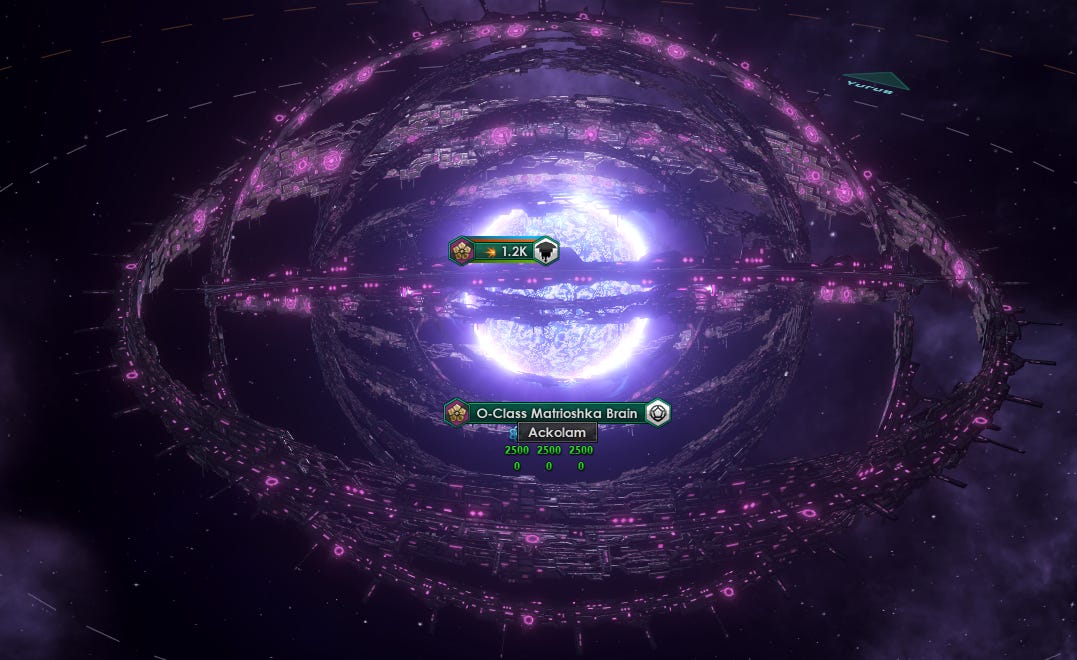32.
I decided recently that I can’t complain about being broke if a) I won’t get a normal job b) I never describe what I do and c) I never ask for money. To rectify that, I’ve been sweating over a funding pitch. (The pitch doc isn’t quite ready yet, but it’s for something like: a media studio drawing inspiration from the greatest works produced by mankind.)
But I ran into a snag. I want to surface and pay homage to the greatest works ever made… but what is this list of great works called? Is it the ‘Great Books’? The ‘Classics’? The ‘Western Canon’? Do these terms reference something I don’t mean to reference? What books make the cut?
Before throwing out specific names (Shakespeare! Cicero!) or specific lists (Adler’s Syntopicon! The St. John’s Curriculum!), I thought it worth asking: on what criteria should such a list, the true list, be assembled?
Begone concreteness!
I don’t have a specific list to propose. But I do have the conviction that:
There is some canon of great works, vessels of wisdom, which constitute some of the highest treasures of mankind.
There is some canon of great works, which is worth studying deeply, whose preservation is advantageous to the continuation of civilization.
There is some canon of great works, whose listing is never fully complete, until man’s purpose is fulfilled, and further wisdom is no longer needed to attain it.
Okay then… so is that the list in Adler’s Syntopicon? Eliot’s Harvard Classics?
Let us suspend judgment! This is a philosophy newsletter, after all—we oughtn’t be overly concrete. Let us instead be resolute in understanding that any ventured list, any specific list, is a partial and incomplete thing: temporary, conditional, aspirational. If it’s real, it is the shadow of a hypothesized ideal. In the realm of spirit resides a true list of Great Books, of which every list proffered by men is a draft and an approximation.
Recipes for ambitious goals
If you can verifiably complete something—like bake a German chocolate cake—a set of instructions for the end goal can be determined sufficient. Such and such recipe from The Joy of Cooking will get the job done.
But when an achievement is hypothetical, complex, or ambitious, like e.g. the construction of a Matrioshka brain, suggested conditions of its achievement must be considered approximate.
Humanity’s greatest written works aim, in great or humble ways, at the fulfillment of humanity’s purpose, in the most expansive sense. This is something we don’t know how to accomplish. We barely know how to describe it, though I suspect it is both grand and humane.
Since our understanding of our goals is incomplete, any canon assembled for their achievement is similarly provisional.
That said, an assertion of provisionality is not intended to discourage proposals regarding the greatest works ever created—only to put these proposals in context.
We can consider this through a metaphor.
The Bridgebuilding Canon
The physical world works a certain way. And while no physical theory describing it is ‘finally true’—in the sense that Newton was corrected by Einstein, and Einstein’s maps aren’t identical to the territory, and so on—some physical theories help us build bridges.
Suppose one wanted to assemble a ‘Bridgebuilding Canon’: a collection of those books whose contents, well-understood, are most conducive to the building of traversable paths over valleys and bodies of water and so on.
Suppose modern society will crumble, but we want our descendants in 22,022 AD to be able to build bridges. We can’t provide refined steel, hydraulic excavators, or Home Depots to our great^n grandchildren, but we hope to provide knowledge.
What books should we send their way? If we’re allotted an earmarked shoebox in the Svalbard Global Seed Vault, with what works should we fill it to the brim?
Unfortunately for our descendants, bridge building is very prestigious. Prestige begets competition, and where competition occurs, deception and bullshit follow in its train. We fear that lauded but low quality works will make the list—senseless babble which will mislead our descendants in the art of bridge building.
We most oppose bridge building bullshitters. But even if we fail to keep them off our shoebox in real life, there is a silver lining: at least our philosophical ideal regarding such a list is safe!
The true Bridgebuilding Canon is that canon which, when implemented in practice with the right material support, produces bridges that stand. That is the sole criterion of inclusion. Keeping this in mind will be an aid in assembling it.
Hidden under leaves
As a bit of an aside, I’m reminded of a poem mentioned in The Hagakure, a samurai manual on moral ethics compiled in the 1700s. (‘Hagakure’ means ‘hidden leaves’ or ‘hidden under leaves.’)
In one aphorism, the author says:
There is nothing we should be quite so grateful for as the last line of the poem that goes, 'When your own heart asks.’
The mentioned poem goes:
To tell others it is a rumor will not do.
When your own heart asks, how will you respond?
The poem reminds us that what is public is one thing, and what is private is another.
Society acclaims, rewards, and recognizes. But society can be wrong. Kipling’s Gods of the Copybook Headings don’t care if your Bridgebuilding books made the NYT list this year.
As society’s character fluctuates, so do the means by which it allocates recognition, condemnation and honor:
If all humans but 100 are destroyed in an apocalyptic event, and the remaining 100 become convinced that the beginning and end of human wisdom is contained in Tom Clancy’s The Sum Of All Fears (1991)—that doesn’t make them right.
Beyond Bridgebuilding
So the success criteria of a Bridgebuilding Canon are clear enough. It’s the stuff that will actually work. What about our Great Books Canon?
My provisional answer is that the true Great Books list is that list of works which most helps us to fulfill our telos as a species—at least insofar as intellectual, spiritual, and artistic works (as contrasted with material things, like physical infrastructure) have a role in fulfilling that telos.
The canon will contain those works which are the most beautiful, most conducive to the pursuit of the good, most germane the continuation of civilization, most helpful to our understanding of the cosmos, and so on.
Okay so what books are on it?
With this framework established I’m finally willing to venture some concrete opinions.
Should one who values the success of mankind study all the Great Books, or only those in the Western Canon (written by Westerners)?
It seems abundantly clear that there have been great works written in China (Mencius, Confucius, etc), the Middle East (Ibn Khaldun, the Quran, etc) and other places.
Ask not after inclusion: ask only what helps to fulfill our purpose.
If one only values the West, or rests one’s hopes on it, should one only study the Western Canon?
If Ibn Khaldun isn’t part of the West, but he wrote something germane to the project of the West, surely Westerners should want it included in their book list.
The book list is not an invitation to a social club. It’s a tool for accomplishing the desperate effort of millennia: to rise as a species from the mud to the stars.
Are the Great Books too biased towards men, or white people, or British people, or Greeks, or some other group?
Probably. I don’t know.
If the list is too biased towards men, or white people, it’s not the true list. If it’s too biased towards Englishmen over Scandinavians or Irishmen, it’s not the true list. If it doesn’t include the best works of Chinese or Islamic philosophy, and such works would make the true list, it’s not the true list. If it includes crappy works in the name of identity politics, or in the name of rolling back identity politics, those works don’t belong on the true list.
If it’s too anything, it’s not the true list, because the true list is perfect. The flaws in particular lists don’t prevent the possibility of a better list. The true list helps us to fulfill our purpose.
Are Great Books lists too biased towards old books, rather than new ones?
Spake Emerson:
See how the deep, divine thought reduces centuries, and millenniums, and makes itself present through all ages. Is the teaching of Christ less effective now than it was when first his mouth was opened? The emphasis of facts and persons in my thought has nothing to do with time. And so, always, the soul's scale is one; the scale of the senses and the understanding is another. Before the revelations of the soul, Time, Space, and Nature shrink away.
As far as I’m concerned, time does not really matter. But perhaps persistence over eons can be a positive sign of a work’s value.
On the other hand, if a canon-worthy book is written in 2035, I’d bet its inclusion will help us to fulfill our purpose.
Should the Canon be confined to books, or do other works merit it as well?
Has a good enough film, videogame, oil painting or blog post been composed, to advance us towards our only and sovereign goal? There is your answer.
Making do before perfection
Perhaps history ends tomorrow; perhaps this Wednesday we are finally lifted from the simulation to consort with our nine-dimensional lobster godkin. Perhaps in our crustacean enlightenment, we realize: Shakespeare was always irrelevant, Confucius mere chatter, the Bible a bunch of noise.
That would be a surprise! But we would recover from our shock, and return to the pursuit of our highest purpose.
This may happen. But it hasn’t yet. Until such a time, we use what is helpful. And some works help us build bridges.
If you enjoyed this and want to support my work, I hope you’ll check out my Patreon. It’s a work in progress, but I hope to improve it soon.
Some recent video experiments you may have missed:









